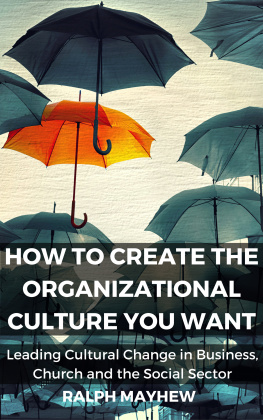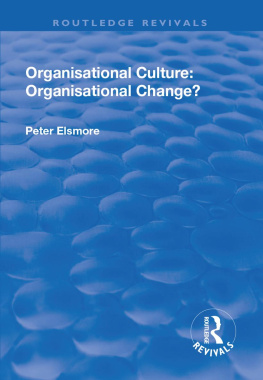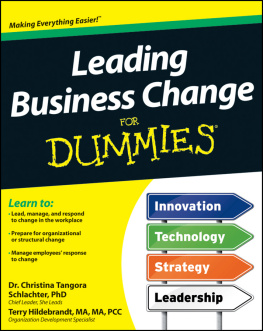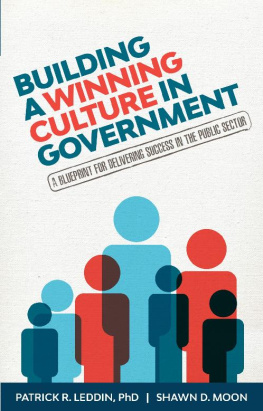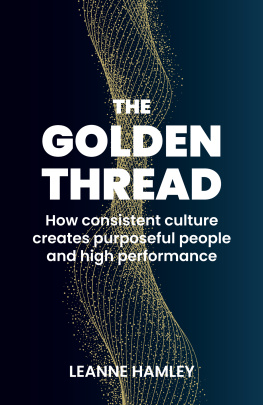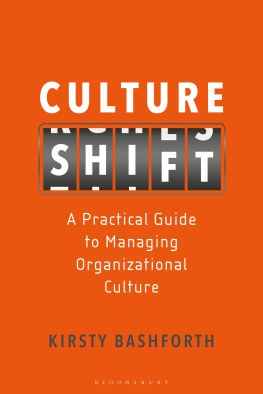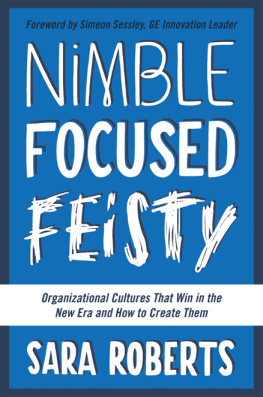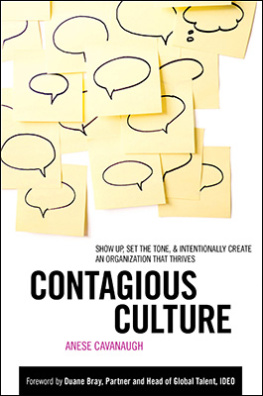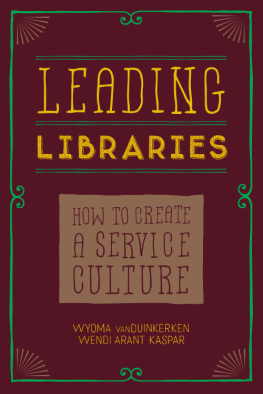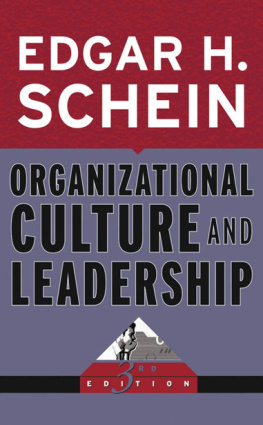CONTENTS
HOW TO CREATE THE ORGANIZATIONAL CULTURE YOU WANT
Leading Cultural Change in Business, Church and the Social Sector
Ralph Mayhew
This book is dedicated to Azaria and Hamish:
you are forever enriching the culture of our lives.
We love you.
SPECIAL THANKS
To Lyndal you are my constant source of encouragement and doing what you do in our lives enables me to do all of this.
To all the people I've led and all the organisations I've led in you have taught me so much about culture.
To my editor Andrew Hartwig you are so patient and encouraging and I've gained much from your great insights.
To Maureen Oldfield you are an incredible proof reader who only makes my work better.
To Susan Crittall your wisdom in making sure that what I'm saying and how I'm leading is helpful and healthy, both in this book and in my life, is such a blessing.
To Matthew McNamee your willingness to trial this work and provide me with feedback has been invaluable, as is your friendship.
To the leaders I lead with at Newlife Uniting Church you are all so gifted and I am constantly blessed to gain from your thinking.
To those of you who fed back, asked questions, and added to my thinking with this material you've all contributed to the health of many other organisations.
CHAPTER ONE
INTRODUCTION
Culture has the power to stop vision in its tracks, sabotage strategy and derail the intentions of incredible leaders. Understanding the power of culture and how it can be a huge asset is vital to effective leadership and producing great churches, organisations and businesses.
In reading this book you will learn what culture is and how to identify it. You will be equipped to challenge, shape and change it, so that people's needs are met and healthy organisations are experienced. Culture has rules to abide by and principles to obey, and as a leader you need to understand this in order to bring healthy change to work environments, teams, customer experiences and your own reputation. Culture is also determined by those within your organisation and the multitude of interactions on every level of an organisation.
Therefore I invite you to join me over the next few pages as we explore the relationship between leadership and culture, so that we might become skilled in using them to the advantage of the causes we have given ourselves to.
WHERE WE START THIS CONVERSATION
In the interest of transparency you need to know that I am a pastor. I have led people over the last 20 years in a vast array of different environments, structures and settings, both in the church and in business. I also have two Bachelors Degrees and a Masters Degree in Leadership, enabling me to offer informed ideas on culture and leadership. I spend much of my current time living in the realities I write about. I have found the learning I receive from these realities and the accompanying research I am engaged in, also powerfully applies to the business and social sector worlds, not just the church.
Many business-minded friends, who have worked in the marketplace or other social settings, have validated the reflections I include in this book and the conclusions you are about to benefit from. While my references are mostly drawn from church related situations, they have been deemed just as valid in any setting where people come together to achieve.
I present these thoughts to you in the hope that regardless of your pursuit and cultural setting you will benefit from them. May you use them to ensure a more enjoyable and productive experience for yourself and your people, doing the things you love and furthering the cause you serve.
For a free tool to help you evaluate the cultural health of your organisation and improve it, I have developed a Tool by which you can measure the health of your culture. It is available at www.ralphmayhew.com/culture-tool .
CHAPTER TWO
WHAT IS CULTURE?
Culture is all about relationships. As a leader you will only find effectiveness if you can relate to those you are leading and helping to move forward. The better you become at understanding people, the more proficient you will become at shaping culture.
Culture only happens where there are people, it is the product of those people relating to each other. Shaping culture is about valuing and loving people, about wanting what is best for those people. It is about using what you know, and the influence you have attained through relationships to create environments in which those people can thrive.
You will undoubtedly encounter some people who are not as keen to relate to you as you are to them, you will have to lead those who may take a long time to trust you, if at all. You will come across people who feel like they are trying to sabotage you or your efforts. Changing culture is painful, but remember that those who you encounter, who may hurt you, slow you down, want you to fail, or are so fearful that they will do anything to stop you, they are the people you are to love. You are their leader.
Loving everyone you lead is not easy, but it is necessary if you are to truly embrace the trust people have given to the leadership position you now hold. This book will help you to navigate these tensions and offer you many skills and tools to be able to serve effectively those you lead, while creating a culture that is life giving for all. Let's start by addressing the mechanics of leadership.
There are many leadership phrases and words and they can easily cause confusion. To ensure we all start in the same place when thinking about the topic of culture, I have provided a brief summary of what each word means in the context in which I will use them:
Mission is the essence of what an organisation wants to achieve, explained in a single sentence.
Vision is the unique and inspired picture, which describes what the future can look like if the mission is pursued.
Strategy is the expression and plan of how the organisation intends to fulfill its vision.
Goals are the steps which need to be taken in a strategy to realise the vision.
Values are the agreed upon (but not always verbalized) behaviours, which determine the expression of an environment.
Culture is the feel, vibe and culmination of everything that the environment is.
Culture sits as the foundation upon which all organisations grow. It is the basis for success in one's mission, vision, strategy, goals and values. Think of it like an incubation system, which if calibrated correctly, can enable the healthy growth of whatever is in the incubation system. If calibrated incorrectly, however, just as quickly things will diminish and eventually die. That incubation system is culture. Calibrate your culture correctly and healthy growth will happen.
Culture is the vibe and feel of an establishment. It's the giver of your first impressions and is derived from the habits of a society or community of people. It impacts and determines your interactions. It's the informant of how you feel and the revelation of values at work. Culture is an organisation's subconscious.
We all live in a culture. Today alone, you would have engaged in multiple cultures if you ventured outside your front door, turned on the television or radio, called a friend or engaged with your family.
Culture is created when two or more people interact. Sometimes it's fleeting, empty and non identifiable but it can be riveting, disturbing, exciting, surprising, wholesome or toxic.

